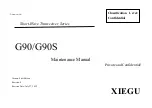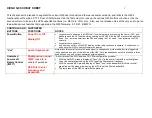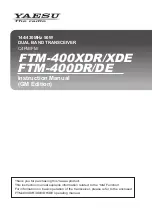
3.4 Operation in Buildings
The Wireless Transmitter sends wireless data transmissions to a receiver
connected to your PC. Radio signals are electromagnetic waves. A radio signal
becomes weaker the further it travels. Range is decreased by different types of
materials found in the direction of the signals propagation. Radio waves can
penetrate most types of wall materials, but they are dampened more than they
would be by a direct line-of-sight installation.
3.5 Building Materials
Examples of how different types of wall material may reduce your signal:
Material Type
Possible Signal Reduction
Wood, Plaster, Sheetrock, Uncoated
0 to 10%
Glass w/o Metal, Fiberglass
Brick, Pressboard
5 to 35%
Reinforced Concrete
10 to 90%
Metal Walls, Metal Doors, Elevators,
Metal Stair Cases, Metal Piping,
90 to 100%
Metal Mesh, Metal Screening
Figure 3-2 Operation In Buildings
Avoid dampening materials by repositioning the transmitting and/or receiver.
3.6. Penetration Angle of Radio Waves through Walls
The angle at which the transmitted radio signal hits a wall is very important
and also has a big effect on maximizing range. Signals between your
transmitter should be transmitted as directly as possible.
Transmitter/Receiver Configuration
3
3-4
Summary of Contents for WRS232-USB
Page 6: ...NOTES iv...
Page 22: ...NOTES System Operation 6 4 3...






































